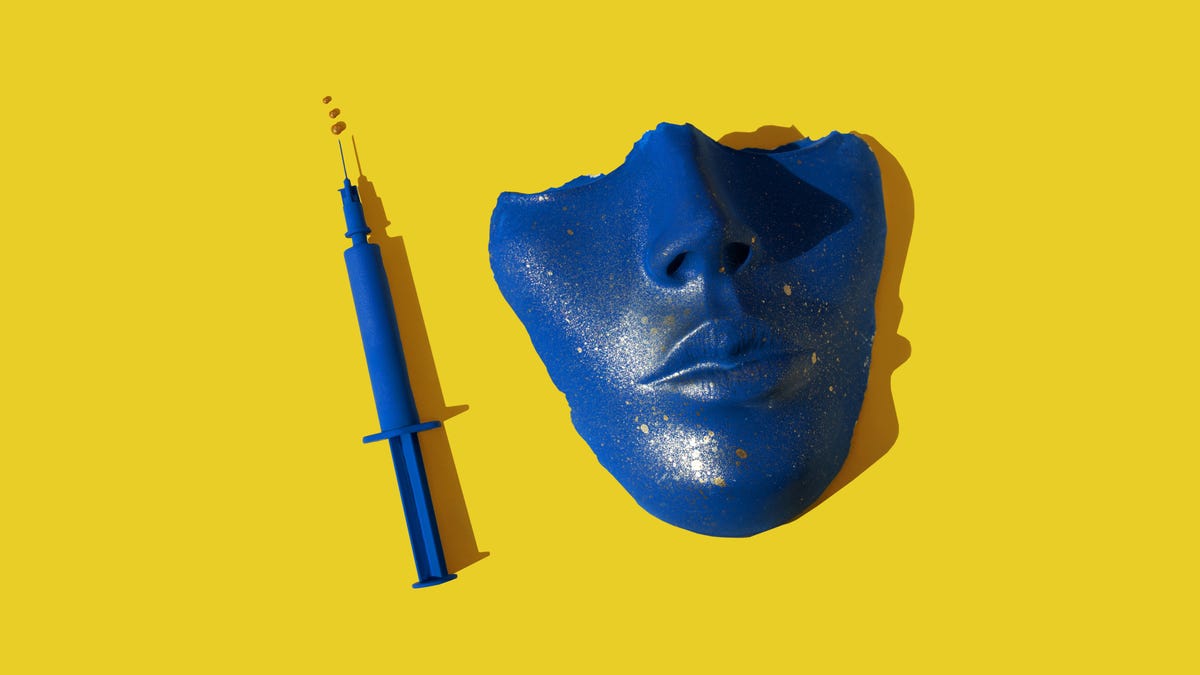 Why You Can Trust CNET
Why You Can Trust CNET CDC, FDA Investigating Botox Reactions: Here's What to Look Out For
Health agencies are looking into unsafe Botox injections given at spas and elsewhere.

Botox injections that may be counterfeit or mishandled are part of an investigation into illnesses across nine states, the US Centers for Disease Control and Prevention and the US Food and Drug Administration said in separate announcements this week.
Of the 19 people who've had harmful reactions and are noted in the investigation, nine have been hospitalized, according to the CDC, and no deaths have been reported. States that have reported reactions include Colorado, Florida, Illinois, Kentucky, Nebraska, New Jersey, New York, Tennessee and Washington.
Injections of Botox (technically called botulinum toxin injections but known by the common brand name) have been used for years as a way to reduce the appearance of wrinkles, and their use isn't slowing, as evidenced by the preventive Botox trend to reduce effects of aging. Because they work by stopping muscles from moving, botulinum toxin injections are also used to treat things like neck spasms, migraines or an overactive bladder.
When the product is legitimate and given by someone who's trained, Botox injections are largely considered safe. However, the injections you get for wrinkles are made from the same toxin that causes botulism, which we normally associate with food poisoning. Problems occur when injections aren't administered safely, or if the product being injected is counterfeit or unsafe, as appears to be the case in the current investigation.
No recalls have been made as of now, and the investigation is ongoing.
How to tell if your Botox injection is safe
Before getting a Botox injection, the CDC said, check whether the people who'll be giving you the shot are properly trained and licensed to administer these injections.
You should ask them if they're licensed and trained, but you may also be able to check for yourself, provided your state has a "license look-up tool," the CDC said. You should also ask if the Botox being used is approved by the FDA and whether it came from a reliable source, the CDC said.
One way to find a more trustworthy place to get Botox is to visit a board-certified dermatologist, or ask your primary care doctor for their recommendation. You can find a dermatologist by plugging in your ZIP code on the American Academy of Dermatology Association's website, or you can use your health insurance company's provider-finder tool to locate trusted medical guidance near you.
If you're ever in doubt about whether a place to get Botox is safe, skip the injection and leave.
The FDA also noted in its warning over counterfeit versions of Botox that there are similarities and differences in how bogus Botox and the authentic Botox from AbbVie are packaged. Some differences that may set the counterfeit packaging apart might include one or more of the following details, according to the FDA:
- "The outer carton and vial show lot number C3709C3.
- "The outer carton displays the active ingredient as 'Botulinum Toxin Type A' instead of 'OnabotulinumtoxinA.'
- "The outer carton and vial indicates 150-unit doses, which isn't a unit made by AbbVie or [AbbVie-owned] Allergan.
- "The outer carton contains language that is not English."
The agency also provided photos of what counterfeit Botox may look like.
Symptoms to watch out for
If you received a Botox or botulinum toxin injection and have any of these botulism symptoms noted by the CDC, you should get medical care immediately:
- Blurry or double vision
- Drooping eyelids
- Difficulty swallowing
- Difficulty breathing
- Muscle weakness
Milder, more typical side effects of legitimate botulinum toxin injections are temporary, according to the AAD, and are usually caused by the injections themselves rather than the botulinum toxin. This includes symptoms like bruising, swelling, redness and soreness.

